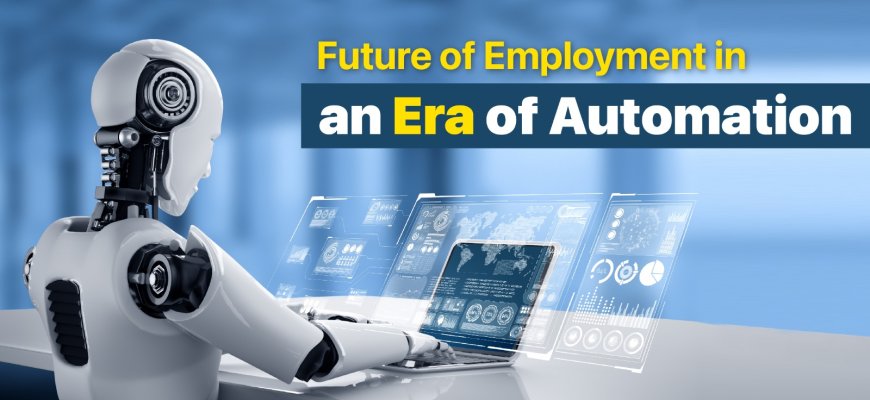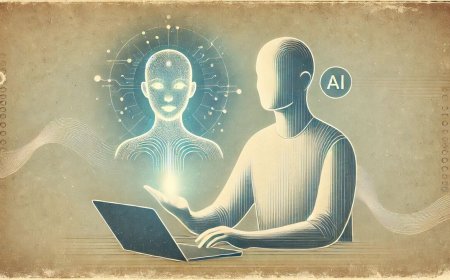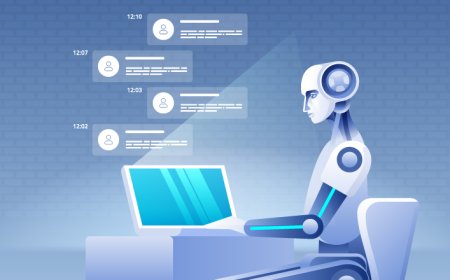The Future of Tech Jobs in the Era of Automation
Discover how automation is reshaping tech jobs. Learn about emerging roles, essential skills, and industries most affected. Prepare for the future of work in tech.

Introduction
Automation is transforming the way we work, and its impact on the tech industry is profound. As machines and algorithms take over repetitive tasks, the landscape of tech jobs is shifting rapidly. This article explores how automation is reshaping the future of tech careers, from job displacement to the creation of new roles and the skills needed to thrive in this evolving landscape.
1. Understanding Automation in the Tech Industry
a. Definition and Types of Automation
Automation in the tech industry refers to the use of technology to perform tasks with minimal human intervention. There are several types of automation:
-
Robotic Process Automation (RPA): Software robots that mimic human actions to perform repetitive tasks.
-
Artificial Intelligence (AI): Systems that can learn from data and make decisions.
-
Machine Learning (ML): A subset of AI that involves training algorithms to improve performance over time.
b. Key Technologies Driving Automation
Several key technologies are at the forefront of automation:
-
AI and ML: Enabling machines to learn and make decisions.
-
Cloud Computing: Providing the infrastructure for scalable automation solutions.
-
Internet of Things (IoT): Connecting devices to automate processes in various industries.
c. Examples of Automation in Tech Workflows
Automation is already integrated into many tech workflows. For instance, chatbots handle customer inquiries, while automated testing tools ensure software quality. In data centers, automated systems manage server maintenance and security updates.
2. The Impact of Automation on Tech Jobs
a. Job Displacement in Routine Roles
Automation is replacing repetitive and manual tasks, leading to job displacement in certain areas. Roles like data entry clerks and basic IT support are increasingly being automated. For example, RPA bots can handle data entry tasks more efficiently than humans, reducing the need for manual labor.
b. Creation of New Roles
While automation displaces some jobs, it also creates new ones. There is a growing demand for automation engineers and AI specialists. Emerging fields like AI ethics and machine learning operations (MLOps) are gaining traction, offering new career opportunities.
c. Changing Skills Requirements
The shift towards automation requires higher-level analytical and creative skills. Continuous learning and upskilling are crucial for tech professionals to stay relevant. Employers are looking for candidates who can adapt to new technologies and solve complex problems.
3. Emerging Tech Roles in the Automation Era
a. AI and Machine Learning Specialists
AI and ML specialists are in high demand. Their roles involve developing and implementing AI models, analyzing data, and ensuring the ethical use of AI. Industries like finance, healthcare, and retail are actively hiring for these positions.
b. Data Scientists and Analysts
Data is the fuel driving automation. Data scientists and analysts play a critical role in interpreting data and deriving insights. With automation tools, these roles are evolving to focus more on strategic analysis and less on data cleaning and preparation.
c. Cybersecurity Experts
As automation becomes more prevalent, the need for cybersecurity experts grows. These professionals protect automated systems from vulnerabilities and ensure the security of AI-driven environments. The demand for cybersecurity specialists is rising across all industries.
d. Robotics Engineers
Robotics engineers design and maintain robotic systems used in various applications. In manufacturing, robotics automate production lines. In healthcare, robots assist in surgeries and patient care. Logistics also benefits from robotic systems for efficient warehousing and delivery.
e. Cloud Computing Specialists
Cloud computing specialists manage the infrastructure that supports automation. Skills in cloud platforms like AWS, Azure, and Google Cloud are highly sought after. These specialists ensure that automated systems run smoothly and scale effectively.
4. Skills Needed for Tech Jobs in the Age of Automation
a. Technical Skills
Proficiency in programming languages like Python, R, and JavaScript is essential. Familiarity with automation tools and frameworks is also crucial. Tech professionals need to be comfortable working with AI, ML, and cloud computing technologies.
b. Soft Skills
Soft skills are equally important. Problem-solving and adaptability are key, as tech professionals need to navigate complex challenges. Effective communication and teamwork are vital in cross-functional teams, where collaboration is essential for success.
c. Lifelong Learning
Staying updated on emerging technologies is crucial. Resources for continuous learning, such as online courses and certifications, are abundant. Platforms like Coursera, Udacity, and edX offer a wide range of courses to help tech professionals upskill and reskill.
5. Industries Most Affected by Automation
a. IT and Software Development
Automation is transforming IT and software development. Automated testing, deployment, and maintenance are becoming standard practices. Opportunities in DevOps and Agile practices are growing, as these methodologies emphasize efficiency and collaboration.
b. Manufacturing and Logistics
Robotics and IoT are automating manufacturing and logistics processes. In manufacturing, robots handle assembly and quality control. In logistics, automated systems manage inventory and optimize supply chain operations.
c. Healthcare and Biotech
Automation is revolutionizing healthcare and biotech. Applications include automated diagnostics, research, and patient care. There is a growing demand for professionals who can integrate tech into healthcare systems, improving patient outcomes and operational efficiency.
6. The Future of Work in Tech
a. Hybrid Work Models
The future of work in tech will likely involve hybrid models, combining human expertise with automated systems. Hybrid roles and workflows will become more common, where humans and machines collaborate to achieve better results.
b. Ethical Considerations
Ethical considerations are crucial in the era of automation. Addressing biases in automated systems and ensuring ethical AI practices are essential. Tech professionals play a key role in developing and implementing ethical guidelines for automation.
c. Global Opportunities
Automation is creating a more interconnected workforce. Remote work and the global demand for tech talent are opening up new opportunities. Tech professionals can work from anywhere, collaborating with teams across the globe.
7. Preparing for the Future of Tech Jobs
a. Upskilling and Reskilling
Identifying in-demand skills and career pathways is essential for preparing for the future. Certifications and advanced degrees can help tech professionals stay competitive. Continuous learning and adaptation are key to thriving in the automation era.
b. Networking and Mentorship
Building connections in emerging tech fields is beneficial. Joining tech communities and attending events can provide valuable insights and opportunities. Mentorship can also offer guidance and support as tech professionals navigate their careers.
c. Embracing Innovation
Adopting a mindset of curiosity and adaptability is crucial. Staying proactive in leveraging automation for career growth can open up new opportunities. Embracing innovation and being open to change are essential for success in the tech industry.
Conclusion
Automation is reshaping the future of tech jobs, creating both challenges and opportunities. By embracing change and seizing new opportunities, tech professionals can thrive in the era of automation. Continuous learning, upskilling, and a proactive mindset are key to staying competitive in the evolving tech landscape.
Frequently Asked Questions (FAQs)
1. What tech jobs are most at risk due to automation?
Roles involving repetitive and manual tasks, such as data entry clerks and basic IT support, are most at risk due to automation.
2. How can tech professionals prepare for automation-driven changes?
Tech professionals can prepare by upskilling and reskilling, focusing on in-demand skills like AI, ML, and cloud computing. Continuous learning and adaptation are crucial.
3. What are the most in-demand skills in the automation era?
The most in-demand skills include programming languages like Python and R, familiarity with automation tools, and soft skills like problem-solving and adaptability.
4. Will automation create more jobs than it replaces?
While automation may displace some jobs, it also creates new roles and opportunities. The net effect on job creation is complex and depends on various factors, including industry and technological advancements.
5. How can I stay competitive in the evolving tech landscape?
Staying competitive involves continuous learning, upskilling, and embracing innovation. Building a strong network and seeking mentorship can also provide valuable support and opportunities.
What's Your Reaction?







































